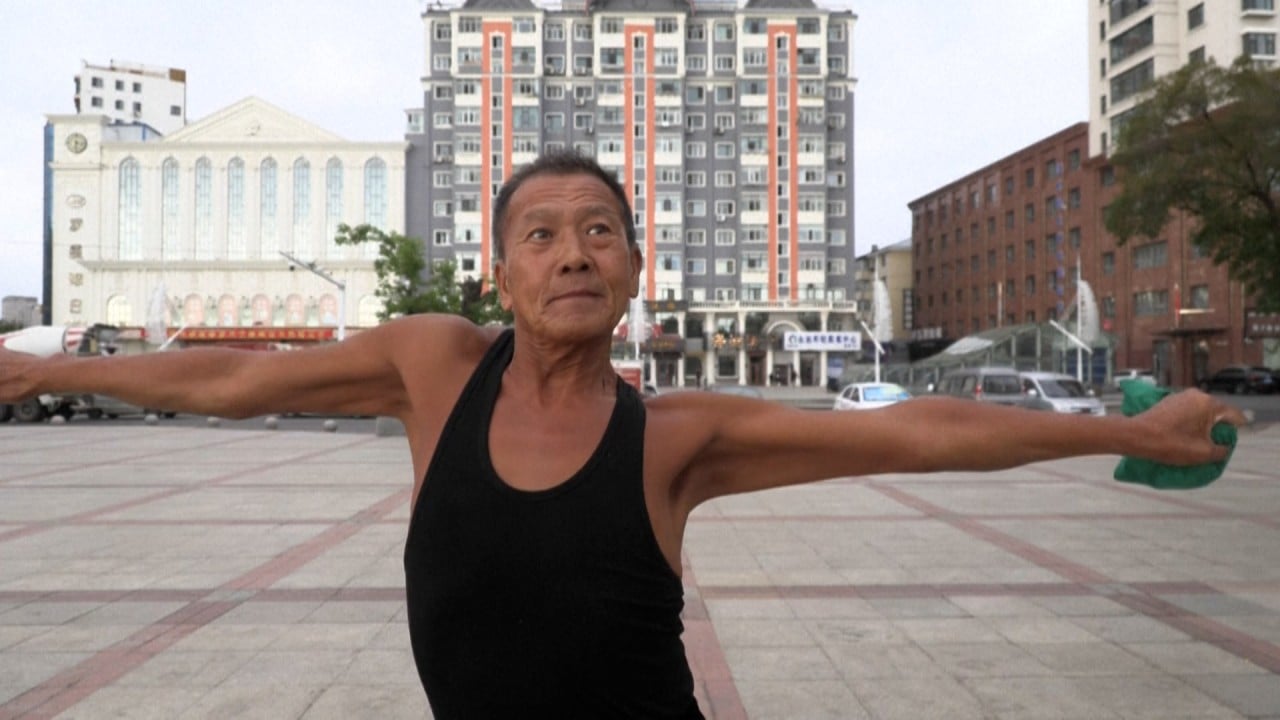
Hong Kong businesses embrace potential of silver economy with more services, tech for rising number of elderly
- New government panel starts work, with experts urging long-term planning for city’s greying population
- More ‘gerontech’ equipment being developed and tried out by seniors coping with frailties of ageing
Retired Hong Kong businesswoman Eileen Ling Pik-kuen keeps fit by going to the gym once a week, taking healthcare supplements and planning holidays overseas.
Although she is in good health, the 70-year-old divorcee with two adult daughters has already begun preparing for the day when she becomes frail, but prefers to continue living in her own home.
She spent about HK$700,000 (US$89,600) to renovate her 600 sq ft private flat in Southern district, widening doors for a wheelchair to pass through and replacing her bathtub with a shower chair. She also bought a hospital bed with side rails and a tray table.
“Many seniors are willing to spend our savings on ourselves to improve our quality of life and feel comfortable, and we don’t have to depend on our children,” said Ling, who lives with a domestic helper.
Rapidly ageing Hong Kong has an emerging consumer market of older people with savings, a better awareness of quality of life and the willingness to spend on themselves.
They are snapping up everything from healthcare products to services related to leisure and recreation, finance, housing and personal care.
More businesses in the city have spotted the potential of the silver economy, churning out new targeted products and services.
New “gerontechnology” devices and equipment that aid rehabilitation or are just fun to use have gained popularity too.
Experts agreed the city’s silver economy would grow, but said the industry had not matured. While a wide range of services and products could be made available, they said many were costly or still at the trial stage.
They said efforts by both the government and private sector were needed to drive the growth of the market.
“The industries surrounding elderly people’s basic necessities such as food, medical care, housing and transport must be comprehensively developed to release the economic capabilities of the entire silver-haired group,” said Grace Chan Man-yee, business director of the Hong Kong Council of Social Service.

Better off, better educated elderly
According to the Ageing Asia Silver Economy Index 2020-2025, Hong Kong ranked fourth in the Asia-Pacific region as a potential silver economy growth market, behind Singapore, Japan and Australia.
The rankings took into consideration factors such as the overall ageing population, gross domestic product, household savings and life expectancy.
Asia-Pacific’s ageing market value is estimated to reach US$4.56 trillion by 2025, up by 43 per cent from US$3.2 trillion in 2020, according to Ageing Asia, a consultancy based in Singapore.
In Hong Kong, the number of people aged 65 and above is projected to rise from 1.45 million in 2021 to 2.74 million in 2046 with more than one in three an elderly person, according to official data.
Louis Chan Wing-kin, deputy director of research of the Trade Development Council, said compared with past generations, the city’s seniors were now wealthier, healthier, better educated and more socially active.
They were also spending not only on healthcare, but also investment, tourism, wellness, beauty, and anti-ageing products and services.
“Their multifarious needs have generated new business opportunities,” he said.
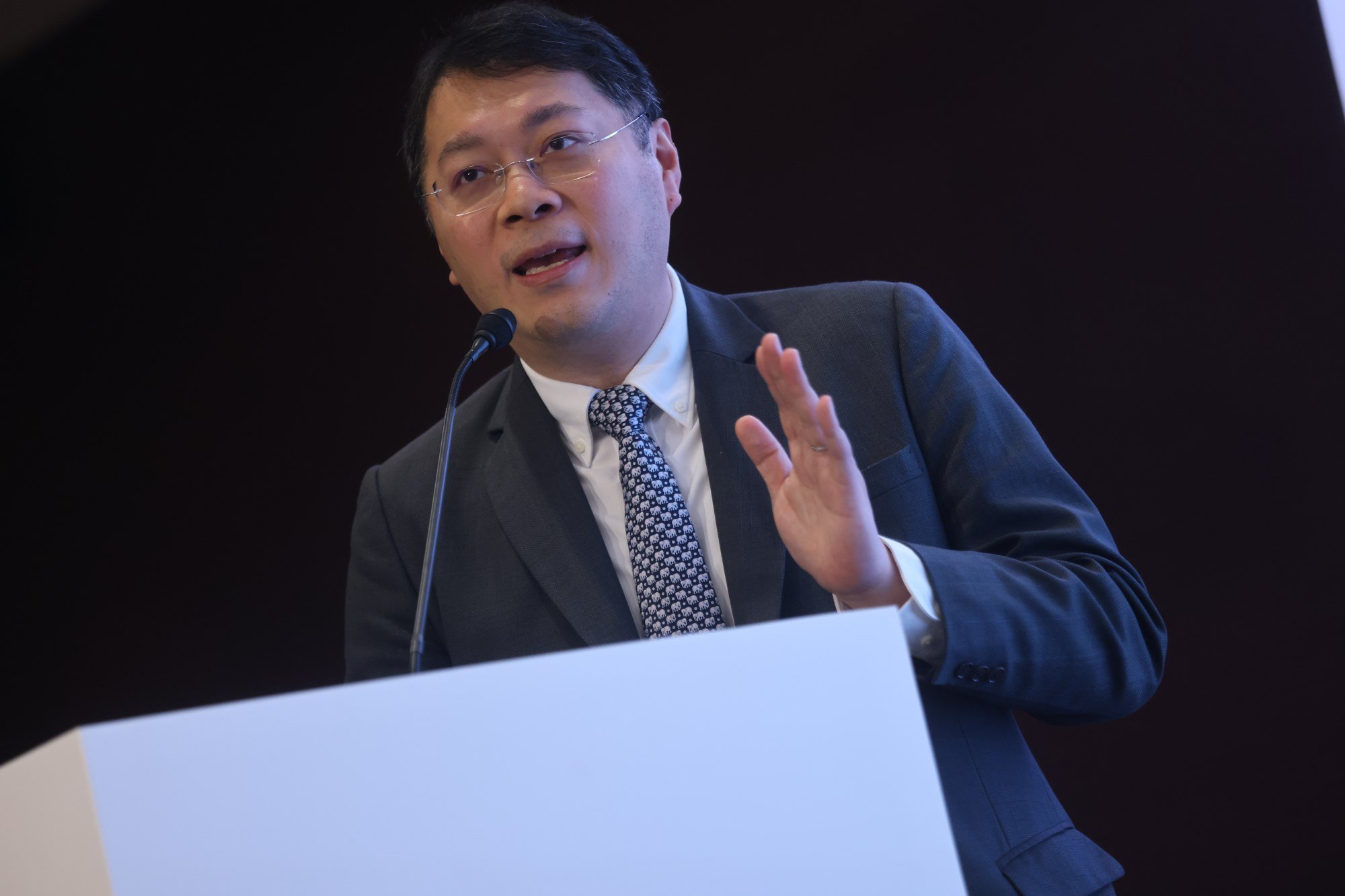
Wingco Lo Kam-wing, president of the Chinese Manufacturers’ Association of Hong Kong, said more of his members had noted the change and began focusing on healthcare and traditional Chinese medicine products in recent years.
Some had even switched from selling items for infants to care products for the elderly, he added.
One company that has seen robust growth from targeting the elderly is Culture Homes, which runs an online shop and eight retail outlets in the city.
Managing director Stephanie Law Kai-nin said customers spent an average of HK$400 on each order at the stores and between HK$700 and HK$900 each time they shopped online.
The most sought-after items were nutritional milk, diapers and wound-dressing products, wheelchairs, high-backed chairs and medical beds.
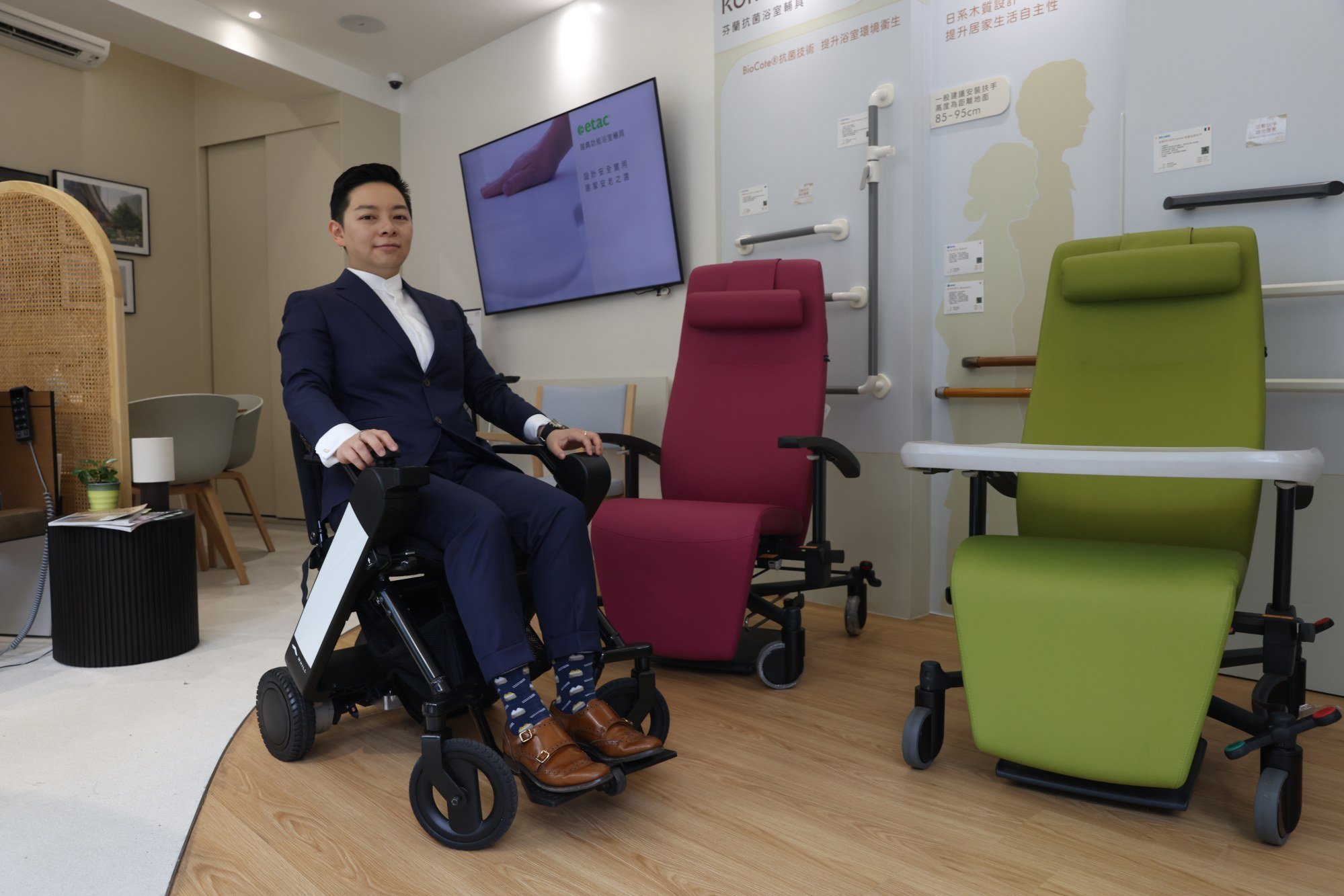
She also noted the growing popularity of soft meals and short-term rentals of equipment such as electric wheelchairs.
Online sales were particularly strong, more than doubling from about HK$6 million in 2022 to HK$13 million last year, she said.
“This segment in Hong Kong has shown stable growth and huge potential,” said Law, adding that the company would put more resources into meeting the surging demand for online shopping by seniors and their carers.
Boom time for ‘gerontech’ products
The city has also seen gerontechnology taking off, with innovative technology being used to create a growing range of products for the elderly.
Five days a week, Lee Big-chun, 95, goes to the Chin Wah Day Care Centre for the Elderly in Ngau Tau Kok, where she spends about an hour a day using a variety of gerontech equipment for physical and mental stimulation.
Among her favourites is a set of four strike pods which emit random light pulses that she must strike to score points. It is meant to train users’ motor and cognitive functions.
Lee, who needs a walking frame to move around, found the game fun, pleased that she now scored much higher than when she started going to the centre about a year ago.
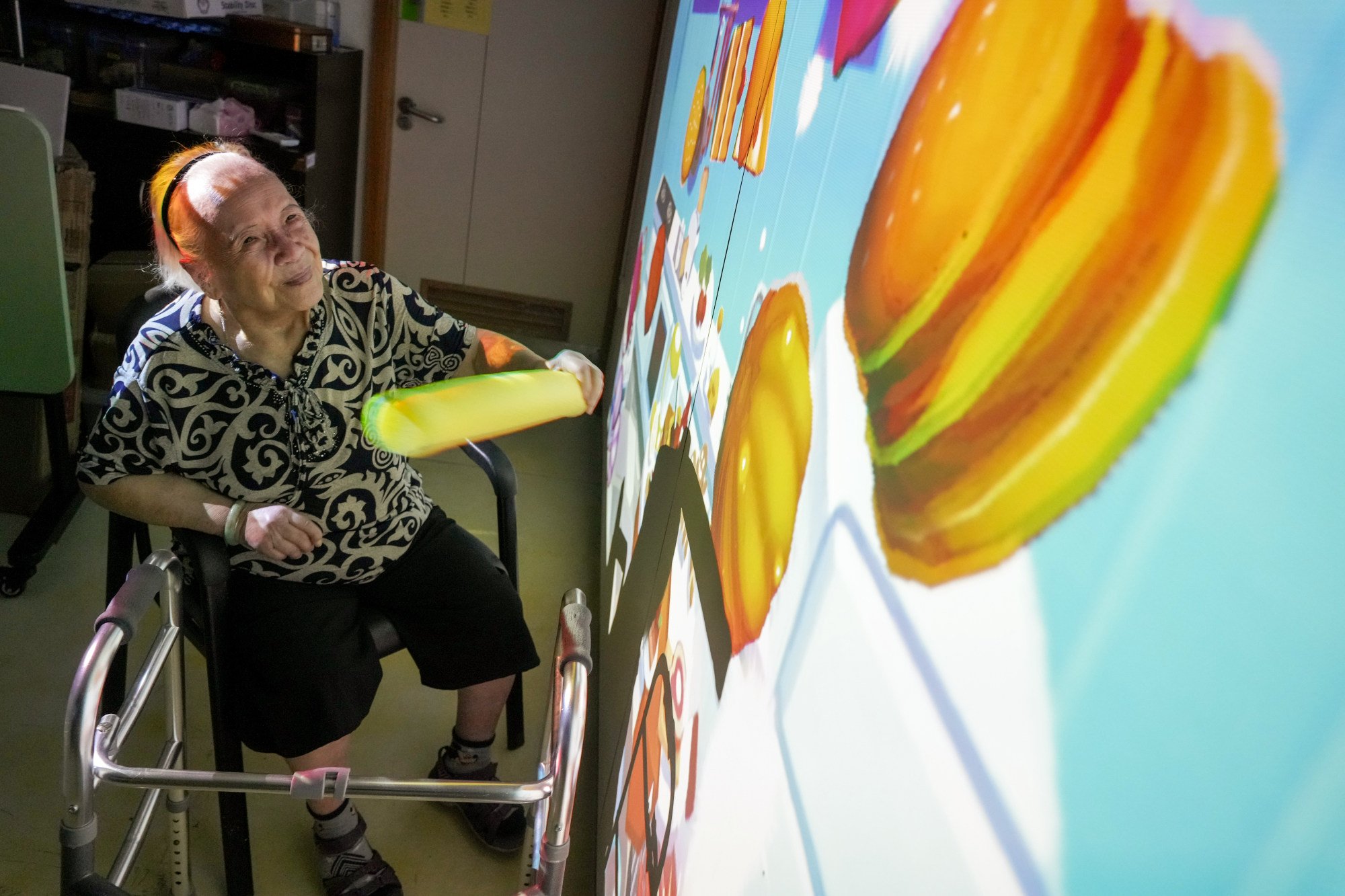
She is also adept at using a virtual reality device which projects various games on a wall, with cheery music in the background. She uses a foam stick to catch different targets such as fruits, as a sensor captures her movements to track her performance.
“I love these games, which are not only fun but also help me exercise. I feel my brain has become sharper and my body more flexible,” said Lee, a widow who lives with her daughter. She also has two sons.
Occupational therapist Lee Wai-tat, of the Hong Kong Christian Service which operates the centre, said it had about a dozen gerontech products and they were well used by the more than 100 senior members.
He said the high price of such devices was a major obstacle. Some of the items were outdated, but the centre lacked funds to get new ones.
To make the equipment more affordable, tech companies have begun renting them out, while also developing more portable equipment for home use.
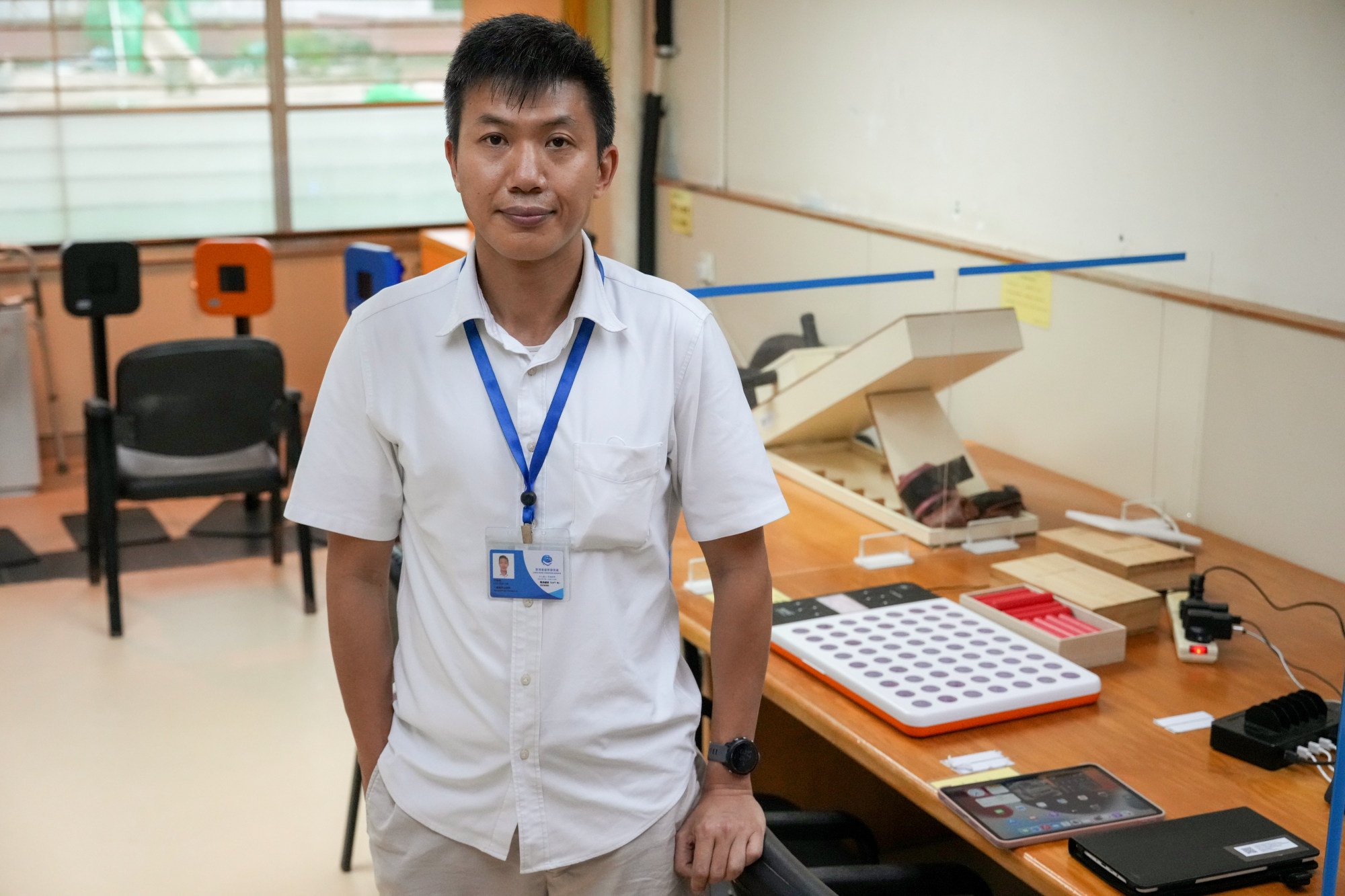
Local company Motive Force Technology would send 1,000 pieces of its newly developed Alpha device to care facilities and centres for free this month for elderly people to try, said chief operations officer Lee Yat-hei.
Once connected to a television set, a virtual figure appears on the screen to guide users through exercises, with an element of fun as they can win virtual coins to redeem gifts.
Lee said after the free trial, the company planned to rent out the equipment for about HK$200 a month. Similar devices on the market cost about HK$100,000 each, he added.
“The latest trend in gerontech products is rental and for home use, which caters to elderly residents’ actual demand and the government’s policy of ageing in place,” Lee said.
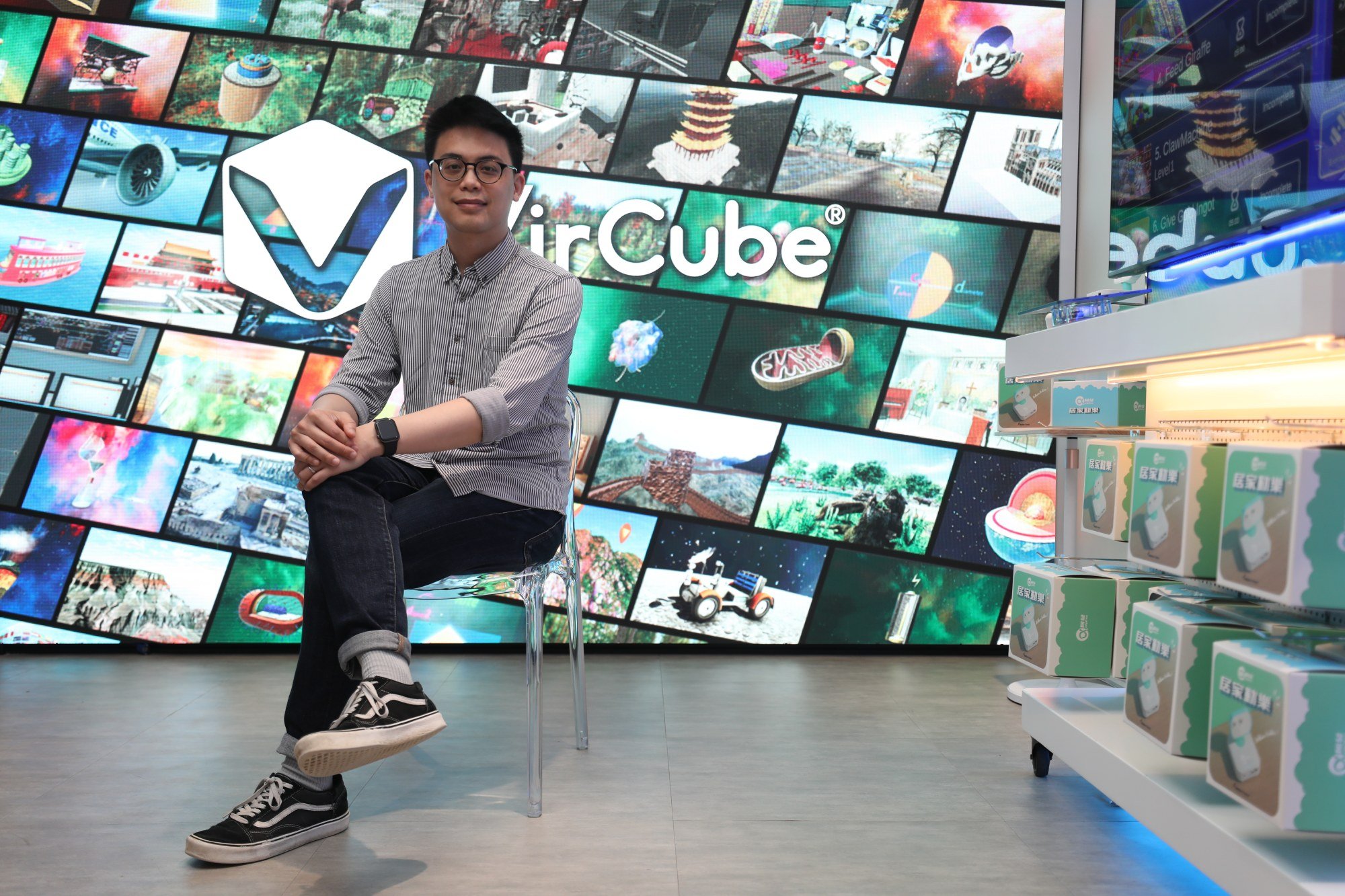
Alvin Cheung Ho-ching, co-founder of local tech start-up HandyRehab which specialises in rehabilitation robotics, said his team spent about two years modifying their flagship product – a lightweight wireless robotic glove – for home use.
The previous version, which allowed users to exercise paralysed hands and regain motor control, was designed for use in elderly care homes and hospitals and was priced at HK$120,000 each.
“The new model is simpler, lighter and easier to use,” Cheung said.
About 200 of the devices had been sold or rented to institutions and individuals since the new model came out about a year ago. It cost HK$18,000 to buy or HK$2,400 a month to rent.
The Hong Kong Council of Social Service also has a pilot project renting out more than 1,500 gerontech devices for elderly people to use at home.
The scheme had helped more than 2,000 people aged 60 and above since it was launched in 2020, according to Connie Tam Choi-wan, the council’s manager of innovation and technology for ageing.
Funded by the Hong Kong Jockey Club, the project offers equipment ranging from electric wheelchairs to commode chairs, hospital beds, assistive eating devices, patient lifts, and fall-prevention and anti-wandering devices.
Members of the project team assess applicants’ physical conditions and their home environment before suggesting suitable equipment for them.
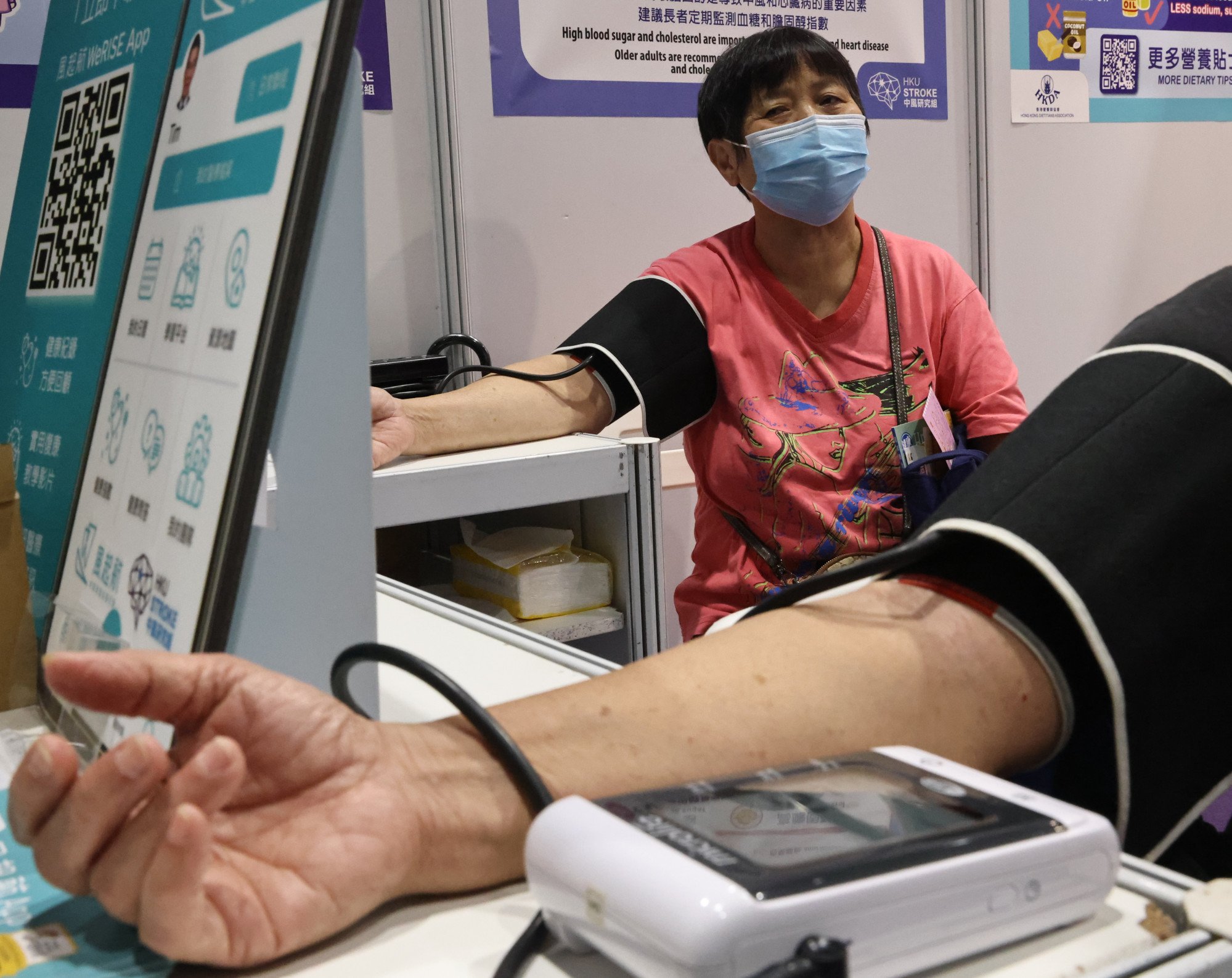
Plan ahead for an ageing city
The Commerce and Economic Development Bureau said the newly established advisory panel on the silver economy announced in last year’s policy address had held two meetings so far.
Chaired by Secretary for Commerce and Economic Development Algernon Yau Ying-wah and including experts in different fields, it would focus on ways to help the development of products and services for the elderly and offer recommendations later this year, the bureau said.
Experts and businesses interviewed had no shortage of suggestions for growing the city’s silver economy.
These included educating elderly consumers about gerontechnology and having incentives such as tax rebates for businesses to invest in the market.
Studies on the financial condition of the city’s ageing population and the potential value of the silver market value were also needed.
They asked the government to expand its HK$1 billion Innovation and Technology Fund for Application in Elderly and Rehabilitation Care to cover individual elderly people.
According to the Social Welfare Department, about HK$660 million of the fund had been approved to subsidise about 1,900 service units such as care homes and community day care centres for the elderly to buy or rent more than 18,000 technology products.
The fund was introduced in 2018 to subsidise elderly and rehabilitation service units to buy, rent and try out technology products. The government has announced that another HK$1 billion would be injected in 2024-25.
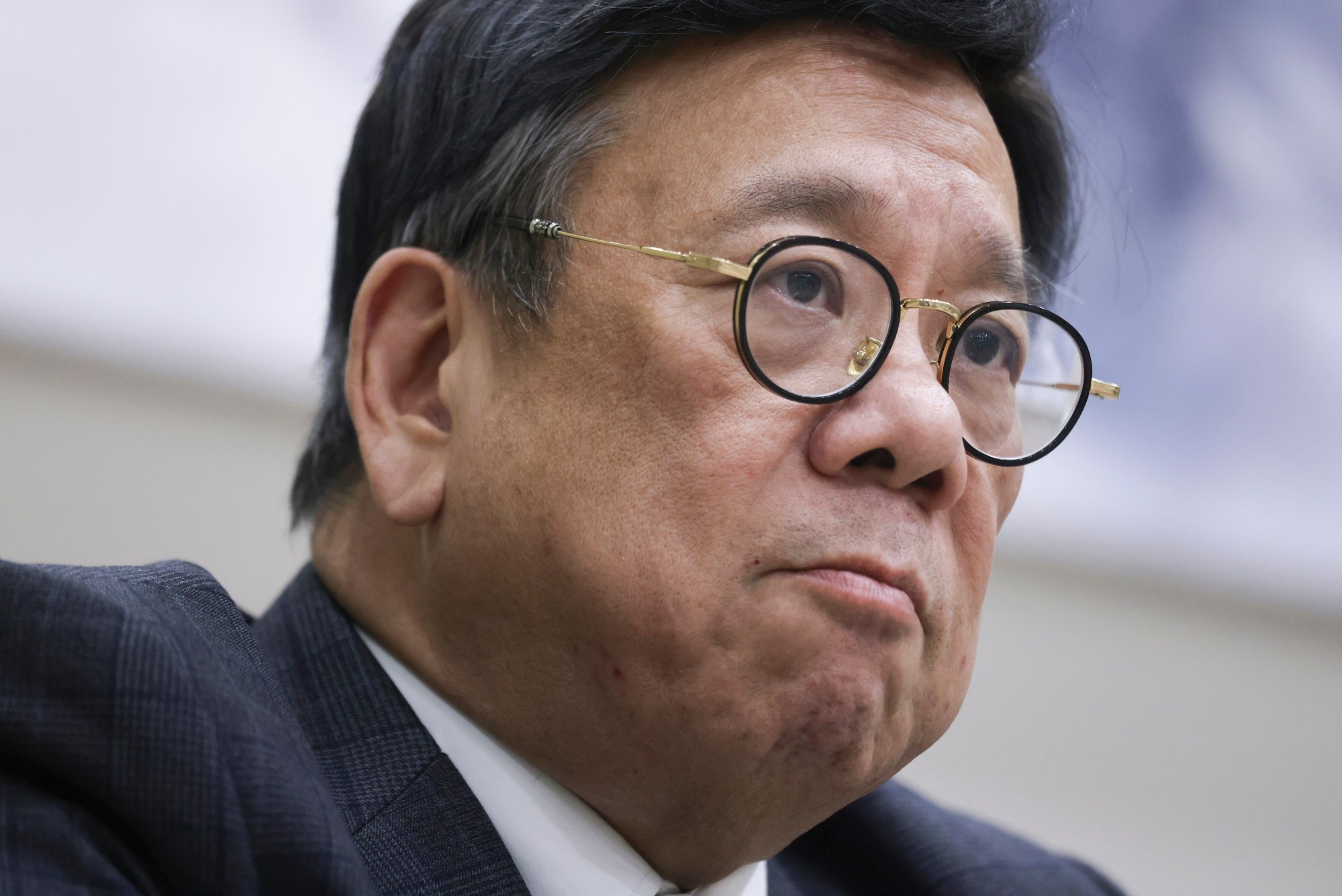
Experts also urged the authorities to learn from other ageing societies such as Japan and Singapore to plan long-term.
Kelvin Tan, head of an applied ageing studies programme at the Singapore University of Social Sciences, said the Singapore government released an action plan in 2015 and that led to more than 70 initiatives to help residents age well.
He said the authorities had planned ahead with a “care economy”, meaning more inclusive overall infrastructure planning, including pilot projects such as community care flats with built-in technology.
Tan said Singapore had also tapped on innovations of other super-ageing countries such as Japan and Finland, attracting their companies to test and commercialise their products in the city state.
Legislator Tan Yueheng called on the government to attach greater importance to the silver economy as in Singapore and Japan, where the authorities had formulated long-term strategies and visions for the ageing society.
He noted Japan’s General Principles Concerning Measures for the Ageing Society, a set of guidelines for long-term government strategies, and also the Basic Law on Measures for the Ageing Society.
He said Hong Kong could learn from Japan’s approaches such as providing subsidies to encourage seniors to try and gain from using technology developed for them.
Authorities could also provide more support to businesses and organisations offering tech products for rent, to foster the development of innovative services, markets and funding models.
“In Hong Kong, it is essential to view ageing not merely as a burden on the social welfare and elderly care system, but also as a way to develop macro-level strategies, raise public awareness and explore the opportunities presented by the silver economy,” Tan said.


